Tony Pulis transformed Stoke City from a struggling second-tier club to an established Premier League outfit. He even delivered an FA Cup final and, with it, a campaign in the Europa League.
The Newport-born manager was deemed so important in Staffordshire that he escaped a driving ban in March 2012 after his lawyer argued it would have caused the Potters and the people of Stoke-on-Trent exceptional hardship.
However, in May of this year, Pulis's powers had deemed to have worn off and he left Stoke by mutual consent, with chairman Peter Coates wanting the club to go 'in a different direction'.
Under Pulis, Stoke had become a feared and largely unpopular outfit, due to their uncompromising direct style of play and their supposed excessive physicality.
It was claimed that when Mark Hughes arrived as his replacement, the former Manchester City boss was going to revolutionise the playing style at the Britannia Stadium.
How's that going then? Below, Sports Mole assesses the changes that have occurred at Stoke since Hughes took charge.
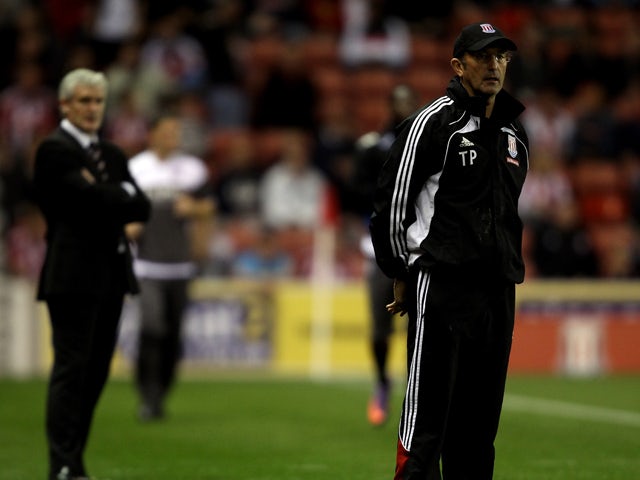 © Getty Images
© Getty Images
Passing
One of the major criticisms of Stoke under Pulis was that the players could not retain possession and that their passing was speculative and substandard. Hughes appears to have addressed this.
During Pulis's final four seasons at the Britannia, Stoke's average share of possession was just 40.73% in the Premier League and their pass completion rate was a lowly 66.68%. The Potters have improved both of those stats under Hughes – possession: 47.6%, pass completion: 77.8%.
Hughes inherited a squad of giants, including 6'4" midfielder Steven Nzonzi, 6'7" forward Peter Crouch and centre-back duo Ryan Shawcross and Robert Huth (both 6'4"). Interestingly, this season, Stoke have won more aerial duals, 418, than any other top-flight team, but only Arsenal, Manchester City, Newcastle United and Liverpool have launched fewer long balls.
The Potters have hit 58 long balls per game this campaign, compared to 66.5 per game over the past four seasons. This is evidence that the Potters are beginning to employ a more patient style under Hughes, but one could play devil's advocate and argue that, as their heading success is so impressive, they are not exploiting their superior height enough.
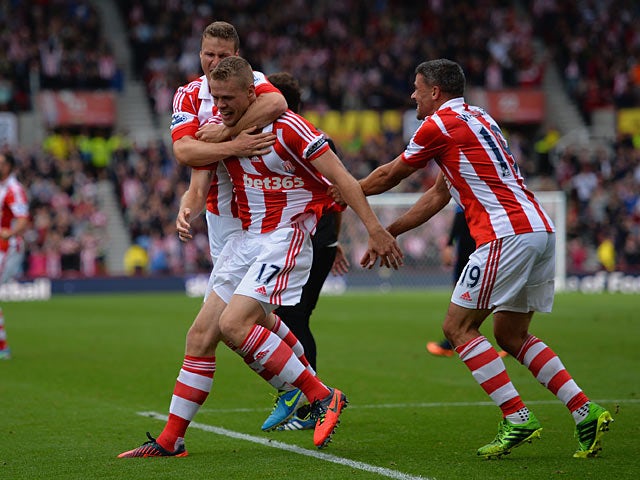 © Getty Images
© Getty Images
Discipline
Largely fuelled by Arsenal boss Arsene Wenger's public condemnation of Shawcross following his leg-breaking tackle on Aaron Ramsey in February 2010, Stoke were often labeled 'dirty' and over-aggressive under Pulis.
The Potters had the Premier League's worst disciplinary record last season, collecting 78 yellow cards and four sending-offs, while committing 12.8 fouls per game.
Hughes has yet to correct this issue and, once again, Stoke top the 'naughty table' this term. Hughes's men have received more yellow cards (36) and committed more fouls (13.4 per game) than any of their league rivals.
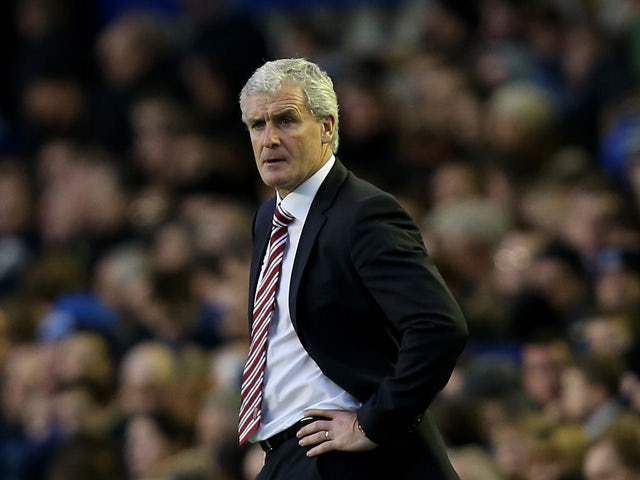 © Getty Images
© Getty Images
Home record
The ultra-loud Britannia Stadium became somewhat of a fortress for Stoke under Pulis. In three of their first four seasons since earning promotion from the Championship in 2008, the Potters would have finished in the top half of the table were it based on home results alone. Pulis's side won 41 of 95 home games in the Premier League, drawing 30 and losing 24.
Stoke have remained extremely hard to beat on Staffordshire soil since Hughes's arrival. Norwich City are the only top-flight team to win away at the Britannia, where the Potters have defeated Crystal Palace, Sunderland and Chelsea, as well as drawing with Manchester City, West Bromwich Albion, Southampton and Cardiff City.
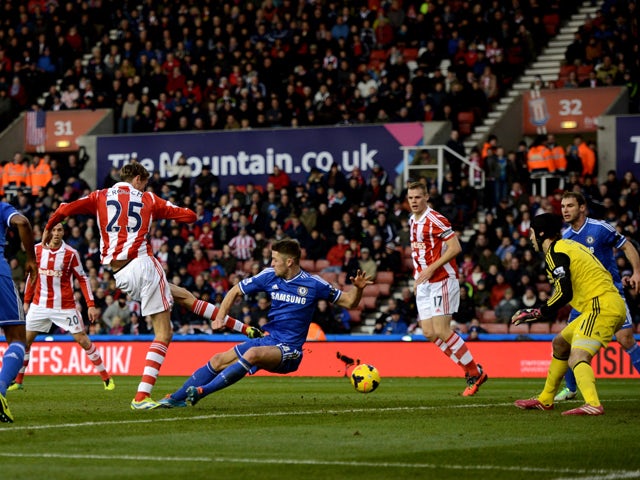 © Getty Images
© Getty Images
Attack
Stoke have become a much more positive outfit under Hughes, who has got the Potters shooting more often and running with the ball more frequently.
Adding Marko Arnautovic and Oussama Assaidi to the squad has made the team more dynamic, while Stoke's full-backs now appear to be much more comfortable in possession.
On average, Stoke have recorded 11.1 shots and completed 7.2 dribbles per league game under Hughes. Last season, the Potters registered fewer shots (10.2 per match) and completed fewer dribbles (4.2 per match) than any of their 19 top-flight rivals.
Only Queens Park Rangers (30) scored fewer Premier League goals than Stoke (34) last campaign. And while their goals-per-game average has risen by 0.05 to 0.94 under Hughes, there is still plenty of room for improvement.
Midfielder Charlie Adam is the side's top scorer, having hit the net three times in 14 league appearances. With Crouch, Jonathan Walters and Kenwyne Jones all struggling for form in front of goal, Hughes will most probably attempt to bolster his striking options in January.
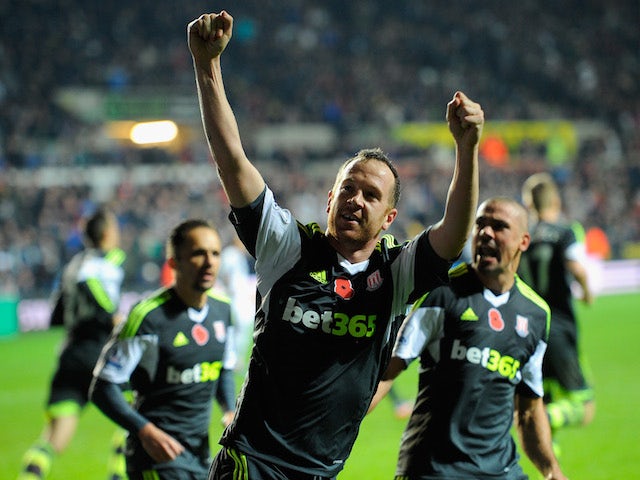 © Getty Images
© Getty Images
Defence
Shawcross and Huth have enjoyed a strong partnership at the heart of Stoke's defence since 2009 and Hughes was wise not to disrupt that bond when he arrived.
The arrival of Erik Pieters from PSV Eindhoven has further strengthened the Potters backline, which has kept six clean sheets in 16 Premier League matches. Only West Ham United, Tottenham Hotspur and Everton have kept more shutouts this season.
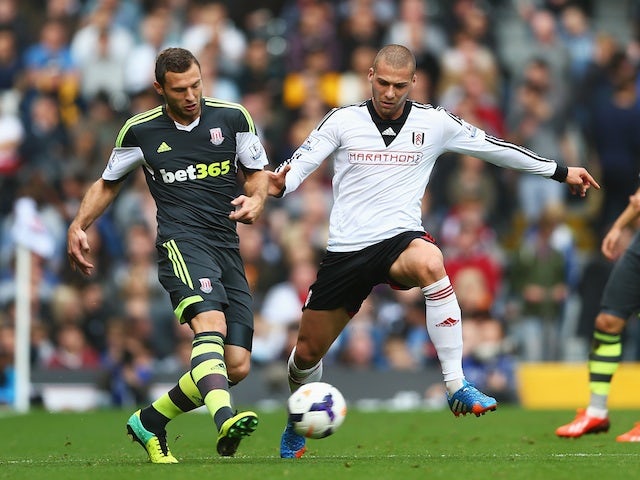 © Getty Images
© Getty Images
Conclusion
Hughes has obviously not turned Stoke into tiki-taka experts overnight, nor will that be his aim. However, the Potters have become more progressive and attractive to watch since his arrival.
Stoke remain tough to beat and resilient at the back, but they are also becoming more comfortable in possession from one to 11.
Sparky has made a few good signings, which have enabled him to start to tweak the team's philosophy. However, as the majority of his current squad spent a considerable amount of time having Pulis's brand of no-nonsense football drilled into them, it will ultimately take a while for significant change to come about. Old habits die hard.
Despite their side being five points better off at this stage compared to their results from the same set of fixtures last season, local supporters are yet to be fully convinced by Hughes. The average attendance at the Britannia this season has been 25,579, which is 1,143 lower than what it was last term.
However, if he receives the same backing as Pulis did under Coates, in terms of finance and time, Hughes should be confident of more than matching his predecessor's on-field achievements in the Premier League.
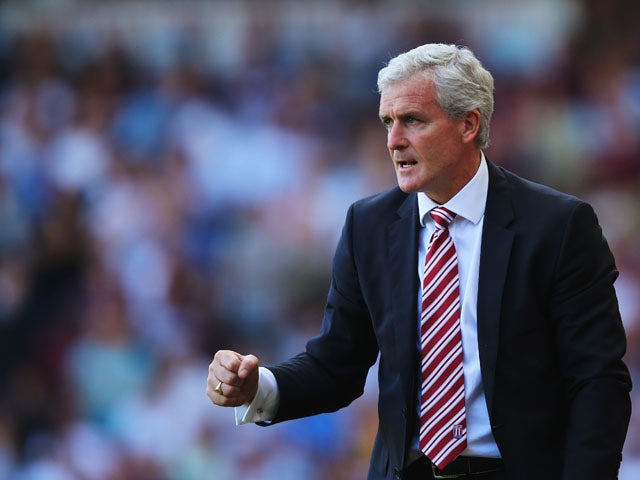 © Getty Images
© Getty Images








